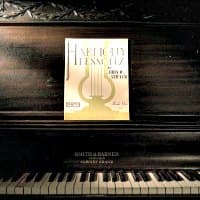| Back to Back Issues Page |
 |
|
The Piano Player, Issue #53 February 09, 2020 |
Tips & Tools for Piano PlayersHi, and welcome to "The Piano Player", the newsletter from OnlinePianoCoach.com. In each issue you will get tips and tools about playing and learning the piano. If you like this newsletter, please share it with your piano playing friends. Or, if a friend forwarded this to you, and if you like what you read, make sure to subscribe (and pick up your gift) by visiting
The Piano Player Newsletter
"The Piano Player"-- Issue #53, February 2020 In This Issue:The 7 Scale Modes on the Piano Learn Piano ScalesLearning about and practicing scales may seem like a chore, but scales are truly important tools when studying music. You can practice scales as a warm-up every day and benefit from improved technique, fingering skills, and to easier play in different tonalities, or keys.In this issue you'll get a comprehensive resource with lessons about piano scales, a major scale lesson with charts and fingerings for all major scales (no note reading needed!). And a lesson about other interesting scales, or modes, to play easily at the piano. Finally, free sheet music from another website with a super useful piano scale etude, for really drilling major those scales in a fun and relatively easy way. Have fun!
Piano Scales for Beginners
Here you can print and learn to play piano scales in major and minor as well as in other interesting modes. A resource with lots of free piano lessons and printable scale charts for beginners.
Major Piano Scale Charts
 Wouldn't you like to learn all major piano scale patterns quickly ? Here you can learn all your major scales quickly and easily with scale charts!
Wouldn't you like to learn all major piano scale patterns quickly ? Here you can learn all your major scales quickly and easily with scale charts!
The piano scale charts below have fingering for all the 12 major scales, both the left and the right hand. But- there's no note reading required! So, it's a handy-dandy tool that's great for visual learners, and also to make memorizing the scales easier.
The 7 Scale Modes on the Piano
The white keys instantly gives us the patterns for the 7 modes, or modal keys. "Hidden" on the white keys are the pattern "templates" for the 7 Modes, including major and minor. (You can also find the Pentatonic Scale on the black keys).
Got Piano Questions?
Ask your piano related questions here:
Piano Q & A
Piano Question of the Month
Piano Scales & Key SignaturesI would like to know how to find out the scale of a melody, and how to match chords with any melody. Thank you. I am a beginner piano player.Maria’s Answer: If you read sheet music, you will easily find out the scale of a melody (also called “key”) by looking at the sharps, flats (or lack thereof) at the start of the piece, right after the G-clef and the F-clef. This is called the “Key Signature”. The key signature gives us two alternative scales; a major scale or a relative minor scale. To be sure, we need to look at the last note of the piece, usually in the bass. This is the “Tonic” of the piece, or the “home” where it sounds best to finish. Let’s take an example:
Piano Sheet Music
Free Scale EtudeI found a great resource with a fun piano scale etude online. This you can download and print free, for really drilling those major scales! A fun and very useful piece for beginners, who already know how to play scales in one octave, and a few basic chords.Find it here: https://www.zacharyjameskolkman.com/major-scale-etudes-112
Comments? Ideas? Feedback?
I'd love to hear from you. Just reply to this newsletter and tell me what you think or what you'd like to read more about.
Your Online Piano Coach, |
| Back to Back Issues Page |

